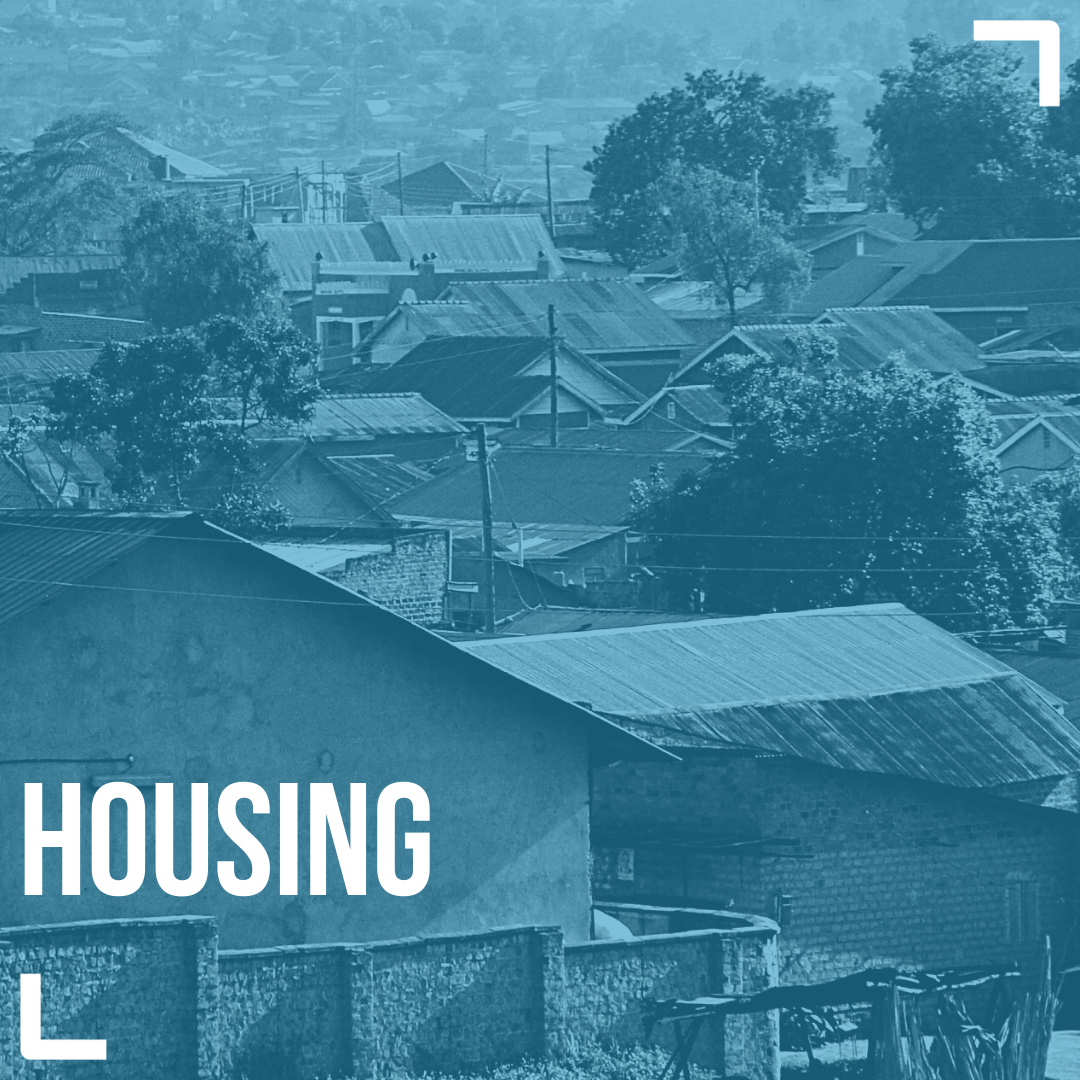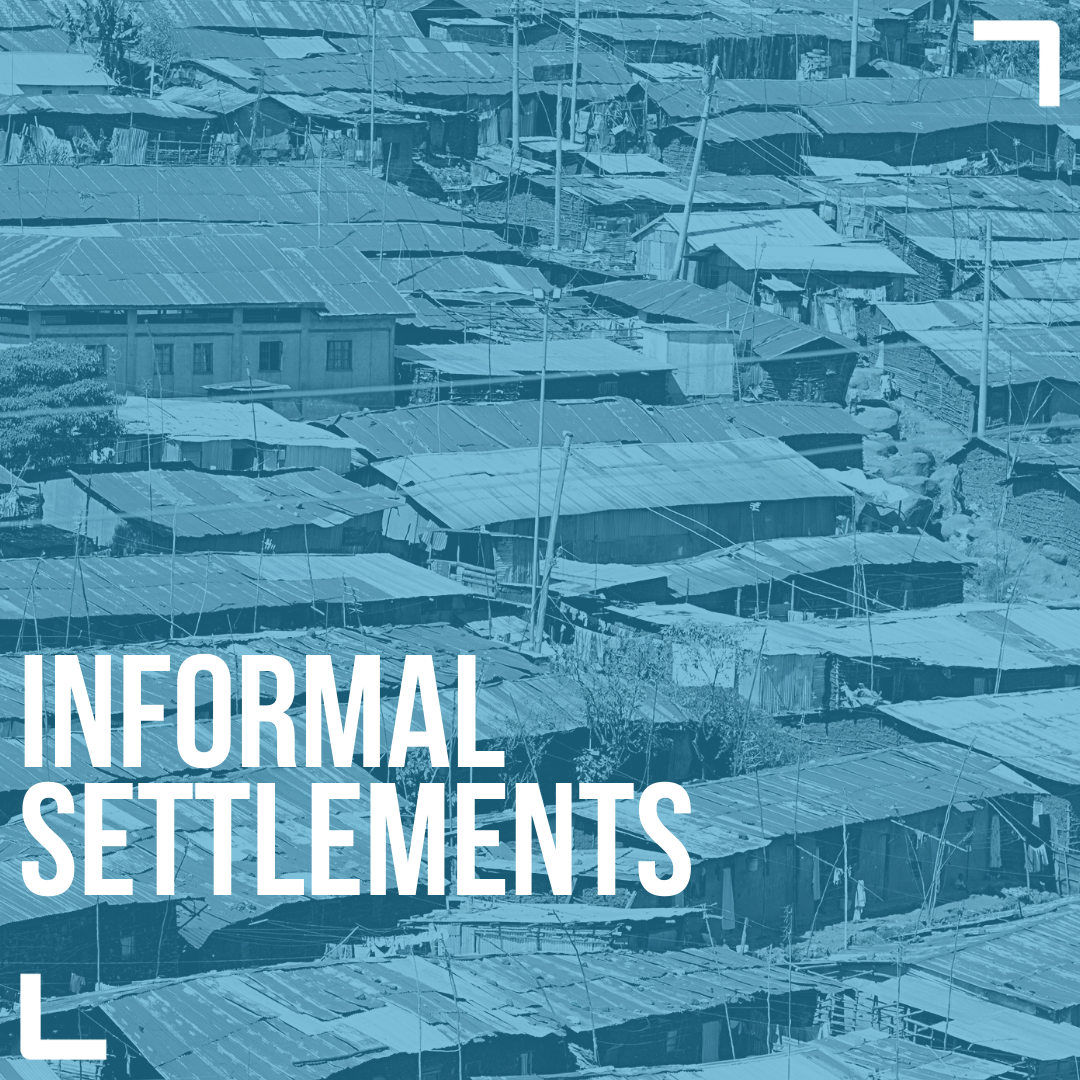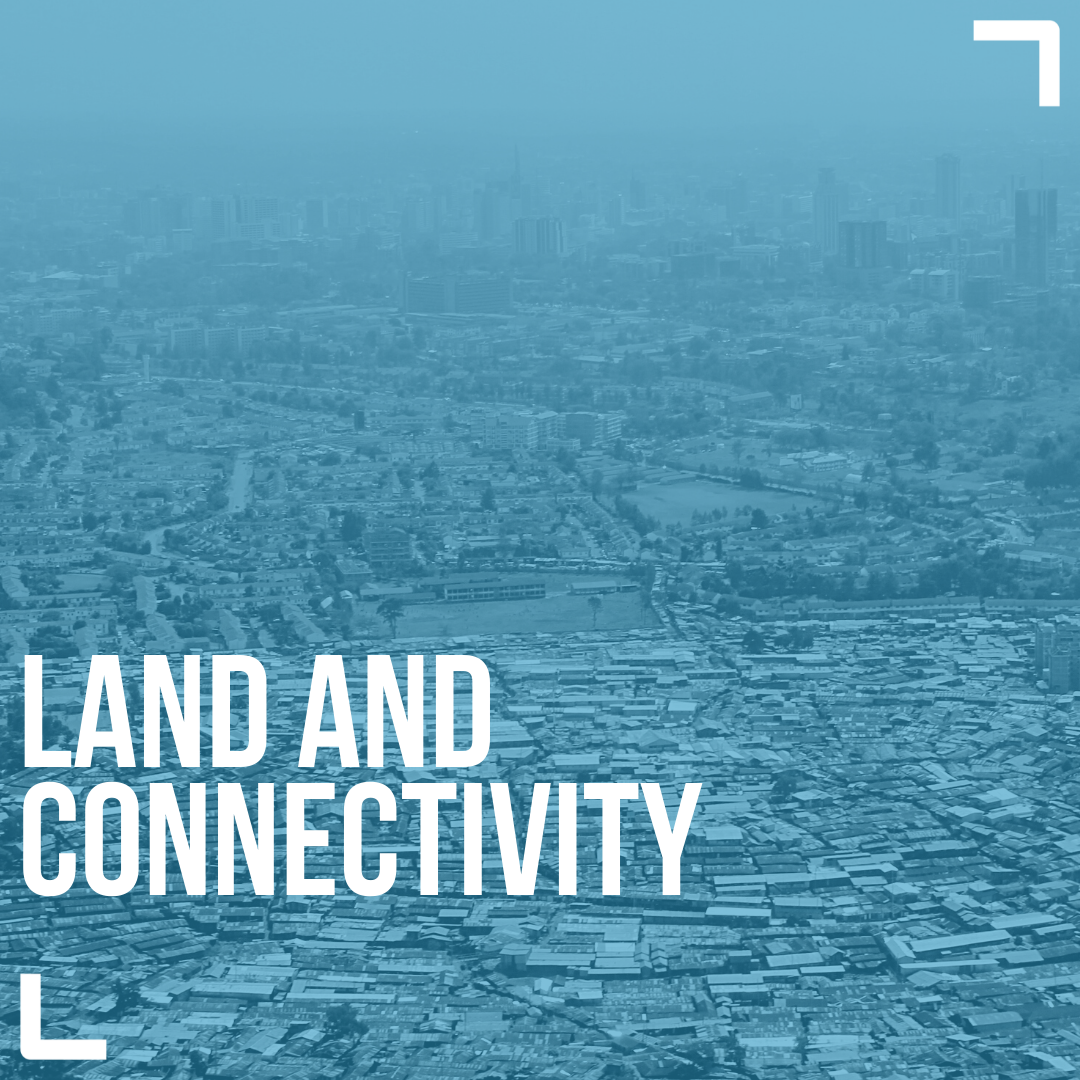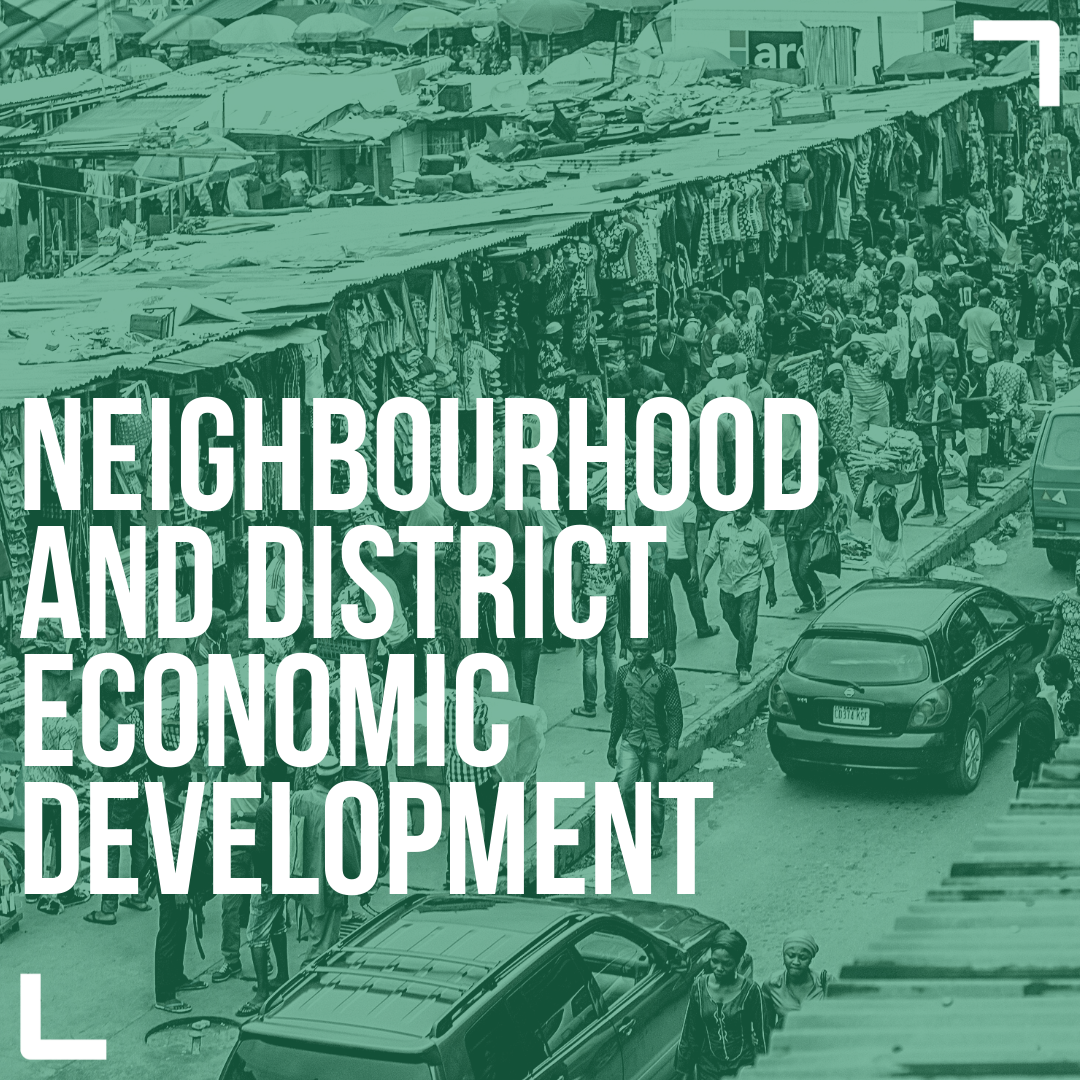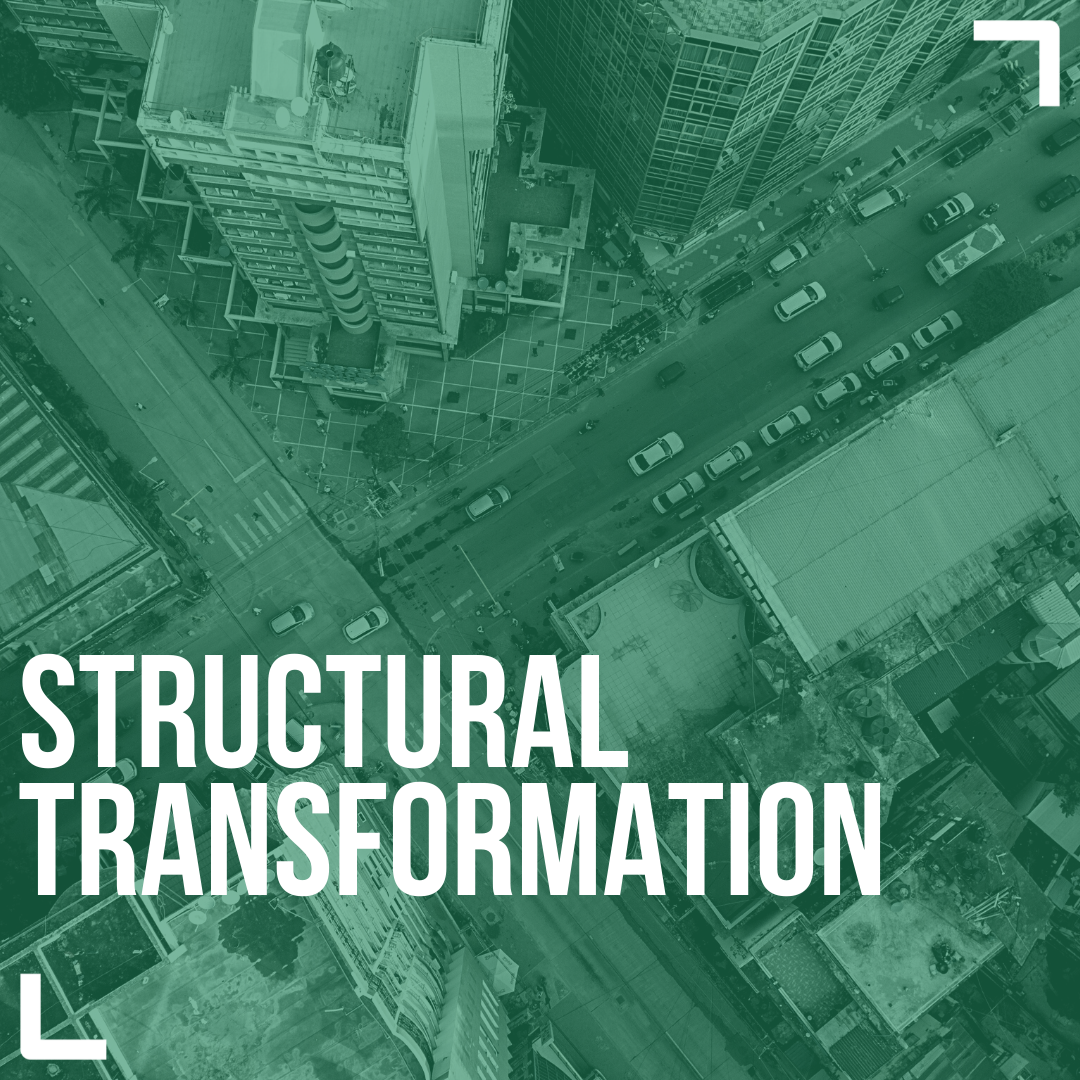Accra
Accra is the capital city of Ghana, the national economic centre and the country’s main connection with the global economy.
Over the last ten years, the population of Accra has more than doubled and it is currently estimated that more than two million people are living in the city.
With the built-up area having increased significantly in size over the last three decades or so, this rapid growth across the metropolis exemplifies some of the major and complex urban challenges that we will be addressing through our action research programme.
Accra: City Scoping Study
Read the full study below, or download it as a PDF here.
Read now
African Cities Research Consortium
Accra: City Scoping Study
By Ransford A. Acheampong (The University of Manchester)
Urban context
Accra[1] is the capital city of Ghana, the national economic centre and the country’s main connection with the global economy. The city’s role within the swing region of Greater Accra is vital in deciding who wins the national presidential elections, making Accra an important political arena for national political elites. Accra faces complex challenges in key areas, including economic development, housing, energy, water and sanitation and transportation. The city’s vibrant sub-national-level politics is strongly connected to and shaped by national-level politics, acting both as opportunities for and barriers to addressing the existing complex urban challenges.
History
Accra’s rise from a trading post to a major coastal urban centre was driven by booming maritime trade with Europeans from the 15th century and the subsequent establishment of castles and forts.[2] In 1877 it became the headquarters of the British colonial administration and subsequently the capital of the British Crown Colony, Gold Coast, and then Ghana.[3]
Rural–urban migration intensified in the period immediately after the Second World War, and a number of migrant towns, squatter settlements and slums emerged. In 1958, the Accra masterplan, ‘Accra: A plan for the town’, was prepared to drive an ambitious modernisation and transformation agenda of the new independent Ghana.[4]
Accra and Ghana’s urban system
As the capital city, Accra is the most important economic and political centre in Ghana. Officially, Accra today covers the approximately 139.674 km2 administrative area known as the Accra Metropolitan Area (AMA).[5] The AMA is the most urbanised area within the Greater Accra Region, one of the 16 administrative regions in Ghana. At the sub-regional level, Accra forms part of the Accra-City Region[6] – a newly designated functional geography comprising the AMA and 12 neighbouring administrative districts. At the national level, Accra has strong economic links with other major urban centres in Ghana, including Kumasi, the second largest city, Cape Coast and Sekondi-Takoradi.
Demography
The administrative boundary of AMA has changed over the years, which makes it difficult to identify population trends. In 2010, the Ghana Statistical Services estimated the population of the metropolis to be 1,665,086, whereas the United Nations World Urbanization Prospects estimates the 2020 population of Accra at approximately 2.5 million, with a projected population of 2.7 million by 2025 and 3.6 million by 2035. Since 2005, the rate of population growth has slowed to about 2.5% per annum.[7]
Physical expansion
Accra and the surrounding areas have grown rapidly in the last three decades. Over the last three decades, the city-region’s built-up area has increased fourfold from 105.4 km2 to 468.5km2. Within the Accra metropolis, built-up expansion has doubled over the last three decades from an estimated 42.1km2 in 1985 to 89km2 in 2017,[8] which constitutes about 63% of the total area of the metropolis. The pattern of urban physical growth reflects a process of rapid sprawling expansion from the coastal cities and towns, including Accra and Tema, towards the peripheral areas inland. In the last decade alone, an estimated 89% of new urban physical development in the city-region has occurred outside the AMA. This pattern of urbanisation calls for a more integrated and multi-scalar approach to the definition and analysis of urban problems and their solutions.
Employment and economy
As the national capital, Accra is the main economic hub of Ghana. The metropolitan economy has the largest share of manufacturing and service industry jobs in the country. According to the 2010 census, approximately 35% of total employment in the metropolis was in the wholesale and retail industry, compared to 38.4% in Ghana’s second largest city (Kumasi), and the national average of 12.3%. Whereas 8.9% of the total working population in Ghana was employed in the manufacturing sector, in Accra, manufacturing employment was 14%.
An estimated 74% of the working population are employed in the informal economy, compared to an estimated 86.1% at the national level (Table 1). More females (82.9% of all those employed) than males (64.7%) are employed in the informal economy. The census report does not show the distribution of informal economic activities across the employment industries. However, we know from the activities that constitute this sector of employment, such as small-scale enterprises, food venders and street hawkers, that much of the informal economic activities fall under the wholesale and retail industry. Employment in the informal economy also takes place in the transportation, storage, construction, accommodation and food services industries.
The official unemployment rate in the Accra metropolis is 7.2%, higher than the national average of 5.8%, although this is likely an under-estimate because underemployment, seasonal unemployment and other forms of precarity in the labour market are not accounted for by the census.
Table 1: Employment by sector
| Employment sector | All | Male | Female | |||
| Number | Percent | Number | Percent | Number | Percent | |
| Public (government) | 60,483 | 7.8 | 37,157 | 9.8 | 23,326 | 5.9 |
| Private formal | 130,302 | 16.9 | 89,380 | 23.6 | 40,922 | 10.4 |
| Private informal | 571,793 | 74.0 | 244,726 | 64.7 | 327,067 | 82.9 |
| Semi-public/parastatal | 1,231 | 0.2 | 834 | 0.2 | 397 | 0.1 |
| NGOs (local and international) | 7,749 | 1.0 | 5,473 | 1.4 | 2,276 | 0.6 |
| Other international organisations | 1,319 | 0.2 | 919 | 0.2 | 400 | 0.1 |
| Total | 772,877 | 100 | 378,489 | 100 | 394,388 | 100 |
Political context
National political context
Ghana has embarked on a process of democratic institutionalisation since embracing constitutional rule and multi-party politics in 1992. It is recognised as one of the most stable democracies on the African continent, with power tending to change hands relatively peacefully between the two main competing parties – the New Patriotic Party and the National Democratic Congress – on a two-term basis.[9] The national political settlement has been characterised by various observers as “competitive clientelist”, in which patronage has become institutionalised and entrenched within the closely entwined political and technocratic systems.[10]
While the ideological roots of the main parties differ – with the NDC identifying as social democratic and statist, and the NPP as pro-market – the tightness of electoral competition seems to have a more significant bearing on the behaviour of successive governments than programmatic commitments. This pressure orientates governments towards short-term, self-interested gains, including rent-extraction to accumulate resources, recouping losses incurred through elections, and distributing resources according to the logics of political patronage.[11] Ruling elites from either party find it difficult to overlook demands from the party ‘foot-soldiers’ on whom they rely for mobilising political support.[12]
Political power is largely concentrated at the national level with the executive wielding excessive powers vis-à-vis other branches of government. Nonetheless, the judiciary as well as other organisations, including trade unions and civil society organisations, maintain an influence over public policy.[13]
National significance and relations between city and national government/elites
Accra is the seat of government, where national-level government agencies, departments and elites are located, and the city is integrated into national governance institutions. Historically, Accra has been a site of political struggles dating back to the colonial period, through the post-independence era of political strife from the mid-1960s to the late 1980s, to the present-day democratic dispensation. Major civil society organisations in the country are located in the capital, and there have been many citizen-led anti-government mobilisations.
Decentralisation
Ghana is a decentralised unitary state with 16 administrative regions. The Metropolitan, Municipal and District Assemblies (MMDAs) are the second level administrative sub-divisions after the regions. Accra Metropolitan Assembly (AMA) is one of 260 MMDAs and the largest of six metropolises in the country. The AMA is headed by a chief executive officer (also known as mayor), a public servant appointed by the national president. The mayor is almost always a leading local member of the governing party. The national government also exerts direct political power and influence by appointing one-third of the AMA’s General Assembly. Confirmation hearings of government appointees to the Assembly are sites of local politics. Local-level representatives to the assembly must not be affiliated to any political party. In reality, however, these local elections have become partisan and heavily politicised, with political parties, powerful individuals and groups using them as vehicles to influence city-level politics.
The AMA comprises ten sub-metropolitan district councils (SMDCs) made up of 72 communities and 76 electoral areas. The AMA’s core functions include preparing development plans covering the entire metropolis to the National Development Planning Commission (NDPC) for approval. On their own, the SMDCs cannot exercise legislative functions, but are expected to implement regulations as enacted by the AMA. They also cannot perform development planning functions. Thus, in addition to carrying out their delegated functions, which include collecting taxes levied by the assembly, they essentially represent their respective localities and contribute to decision-making at the assembly level.
The Local Government Act (Act 462) empowers MMDAs, including the AMA, as authorities of local development, acting as the planning, development, budgeting and rating authority; however, genuine devolution of power remains an aspiration, as the central government maintains political power and fiscal control.[14]
In Ghana, both the 1992 Constitution (Article 276) and the Chieftaincy Act of 2008 prohibit chieftaincy institutions from taking active part in party politics and local governance, as defined in the decentralisation law. However, in practice, traditional authorities (chiefs) in Accra (and other areas in Ghana) wield significant political power in their respective jurisdictions and influence local/urban politics and development agendas.[15] The relationship between traditional authorities and local governments, such as the AMA, is often very complex.[16] The role and influence of traditional authorities in local politics vary from one jurisdiction to the other, but in urban areas like Accra, they maintain close links and collaborate with formal state institutions in urban governance. At the confluence of the complex relationship between the formal state institutions and the chieftaincy institution emerges a number of critical issues, including the effectiveness (or otherwise) of land use planning and land management, and access to and rights over land in Accra.
Urban challenges
The latest Ghana Living Standards Survey (GLSS 7) reported that average annual household earnings in the metropolis (GH₵ 63,027) are approximately 30% higher than that of other urban localities (GH₵ 44,583) and the national average of GH₵ 33,937. Income from work accounts for 10.8% of total household earnings in Accra, which is lower than the urban average of 13.5%. Income inequality in Accra remains high but it is lower than elsewhere in Ghana and has decreased since 2012.[17] The average annual per capita household income (gross) is GH₵ 23,532, representing a daily household earning of GH₵ 64.47 (US$10.93). Approximately 74% of the population work in the informal economy and the metropolitan authority currently lacks a coherent strategy for integrating informal economic activities into the urban space and/or linking them to those in the formal sector.
A major consequence of rapid population growth has been the ever-growing challenge of meeting the housing needs of the population. One official source indicates the estimated housing deficit in the AMA to be about 300,000 units.[18] An estimated 58% of the population live in informal housing. In Old Fadama, one of the largest informal settlements in the metropolis, more than 80,000 individuals live at extremely high densities (average of 2,562 persons per hectare) in conditions of squalor.[19] In both the formal and informal housing sectors, there is overcrowding, with an estimated 65% of households occupying one room in the metropolis, and an average household size of four persons.[20] Many have inadequate access to basic facilities, including potable water and toilets. Whilst new residential developments in the peripheral areas of the metropolis are crucial to addressing the housing crises, many are unplanned and lack access to basic facilities and services. These problems are fundamentally rooted in a historically weak and ineffective land use planning system,[21] a complex land governance system[22] involving state institutions and traditional authorities, and state failure in housing supply.[23]
Flooding is identified as a primary source of vulnerability in Accra’s recently launched resilience strategy report. The causes of flooding include unplanned physical development, development in hazardous floodplains and wetland environments, poorly developed and/or inadequate drainage systems and poor solid management systems.[24] The city generates an estimated 3,000 tonnes of solid waste per day, of which 83% is collected. According to the resilience strategy report, the waste generated by over 30% of households is not collected on a house-to-house basis.
As Accra has grown in both population and physical size over the last decades, problems of mobility and accessibility have worsened,[25] especially for the urban poor and low-income households who depend on public transport. The problem is not only a growing mismatch between demand and supply of transport services, but also a lack of affordable mobility options for different groups of residents in the city. This in turn worsens problems of unequal access to jobs and social services among low-income urban groups. The combined forces of the housing market, evictions from informal and squatter settlements, as well as the unfolding process of commercial redevelopment schemes in central Accra are expected to trigger displacement of low-income urban households into the peripheral areas.
Political issues that prevent urban challenges from being addressed
The technical solutions needed to address Accra’s urban challenges are known and widely recognised by the various national- and metropolitan-level public sector agencies and departments. However, mobilising and translating these technical solutions into policies, strategies and transformative actions remains a political challenge.
Accra’s housing crisis, for example, has long been seen as a national issue to be addressed by the national government. While national governments do acknowledge this and other problems in their party manifestoes, they often do not acknowledge the complexities involved nor articulate coherent solutions for these problems. In recent years, however, there appears to be a growing recognition of the need for development interventions with a place-based focus. For example, the current NPP government, as part of its place-based development strategy, established the Ministry of Inner-Cities and Zongo Development (MICZD) to focus on the specific challenges in inner-city communities, including squatter and informal settlements, some of which involve settlers from the Northern regions of Ghana and the Sahel region of Africa.
Political challenges also stem from the decentralised governance structure, the powers it gives to local governments and the limitations it imposes. For example, the decentralisation law empowers local governments as authorities of development, but it also imposes limits on their ability to raise the substantial capital investments that they require to address complex urban problems. Thus, while local governments, such as the AMA, may best know and understand their challenges, they may not necessarily have the political and fiscal powers to directly address these challenges.
The constitutional and legislative ambiguity surrounding the role of traditional authorities and their relationship with formal state institutions is another political problem that has major implications for urban development in Accra and other urban areas. As stated above, major urban problems, including ineffective land use planning, chaotic land governance and associated urban land markets that affect access to land and housing, as well as tenure security, are deeply rooted in the prevailing land tenure system.
Furthermore, political short-termism and a lack of continuity of initiatives and projects by successive governments remain major political barriers to addressing some of these major challenges in Accra and other urban areas.
The appointment of the mayor of Accra by the president, instead of being elected by citizens, raises a number of implications that directly affect local development. Mayors are often under enormous pressure from the central government and often feel directly accountable to the president and their political parties, which does not necessarily imply direct accountability to the electorate. Moreover, the political continuity required to sustain local development policies and initiatives is not guaranteed, given that mayors are replaced if their party loses national elections.
At the urban level, the ownership and management of community infrastructure and social services has potential to become highly politicised. Community-based, self-help arrangements to provide services in low-income communities, in some instances do evolve to become avenues of political mobilisation and vehicles for community groups and individuals to become part of and influence city-level politics and power dynamics. The management of these community facilities, whether funded publicly or by voluntary groups and resident associations, have consistently become sites of local political conflicts, due to patronage at the urban level, the city government level and the relationships between these actors.[26]
Furthermore, given the political and economic significance of Accra as the capital city and one of the key deciders of national-level election outcomes, the metropolis’ challenges often become extremely politicised, especially during election seasons. Within the wider setting of political patronage and clientelism, this can undermine the commitment to identifying and implementing lasting solutions to complex urban challenges. Instead, debates around what should become of informal settlements or informal public transport operators, strategies to address urban flooding, and water and energy supply challenges, among others, are recycled during election seasons and used by political parties to win votes.
As reflected in official documents and academic sources, there is a recognition and sound understanding of the complex challenges facing Accra, at least from a technical perspective. There are a number of ongoing initiatives and programmes aimed at tackling these urban challenges. Identifying and working with national- and city-level organisations that are at the forefront of solving these challenges will be crucial. There appears to be a consensus among citizens and actors in the governance and policy-making arenas that one of biggest barriers to transformation is the lack of implementation of programmes, plans and strategies at all levels. A plethora of actors in the city, including leading civil society organisations and policy institutes, university departments and non-governmental organisations, have enormous experience and local knowledge on urban challenges and reforms. Harnessing this can help generate a new wave of efforts to deliver effective and sustainable improvements to the levels of productivity, poverty reduction and equality that the city currently experiences.
References
Abdulai, A. G. and Hickey, S. (2014). “Rethinking the politics of development in Africa? How the ‘political settlement’ shapes resource allocation in Ghana”. ESID Working Paper No 38. Manchester: Effective States and Inclusive Development Research Centre, The University of Manchester.
Acheampong R.A (2019). Spatial Planning in Ghana: Origins, Contemporary Reforms and Practices, and New Perspectives. Springer Nature Switzerland AG.
Arku, G. (2009). “Housing policy changes in Ghana in the 1990s”. Housing Studies 24: 261-272.
Arku, G., Mensah, K. O., Allotey, N. K. and Addo Frempong, E. (2016). “Non-compliance with building permit regulations in Accra-Tema city-region, Ghana: Exploring the reasons from the perspective of multiple stakeholders”. Planning Theory & Practice 17(3): 361-384.
Amoako, C. and Frimpong Boamah, E. (2015). “The three-dimensional causes of flooding in Accra, Ghana”. International Journal of Urban Sustainable Development 7(1): 109-129.
Arn, J. (1996). “Third world urbanization and the creation of a relative surplus population: A history of Accra, Ghana to 1980”. Review (Fernand Braudel Center), 413-443.
Asabere, S. B., Acheampong, R. A., Ashiagbor, G., Beckers, S. C., Keck, M., Erasmi, S. and Sauer, D. (2020). “Urbanization, land use transformation and spatio-environmental impacts: Analyses of trends and implications in major metropolitan regions of Ghana”. Land Use Policy 96.
Ayee, J. and Crook, R. (2003). ” ‘Toilet wars’: Urban sanitation services and the politics of public-private partnerships in Ghana”. Working paper series, 213. Brighton: IDS.
Callistus, M. (2009). “Local government and traditional authorities in Ghana: Towards a more productive relationship”. Commonwealth Journal of Local Governance 4: 7-25.
Crawford, G. (2009). “‘Making democracy a reality’? The politics of decentralisation and the limits to local democracy in Ghana”. Journal of Contemporary African studies 27(1): 57-83.
Farouk, B. R. and Owusu, M. (2012). “‘If in doubt, count’: The role of community-driven enumerations in blocking eviction in Old Fadama, Accra”. Environment and Urbanization 24(1): 47-57.
Ghana Statistical Service (2018). Ghana Living Standards Survey Round 6 (GLSS 7) – Poverty Trends in Ghana 2005-2017. Accra: GSS.
Ghana Statistical Service (2014). 2010 Population and Housing Census. District Analytical Report, Accra Metropolitan Area. Accra: GSS.
Grant, R. and Yankson, P. (2003). “Accra”. Cities 20(1): 65-74.
Government of Ghana (2015). Ghana National Spatial Development Framework (2015-2035): Volume 2: Overall Spatial Development Strategy. Accra: Government of Ghana, Ministry of Land and Natural Resources, Ministry of Environment, Science, Technology and Innovation, Town and Country Planning Department, National Development Planning Commission. Available online (accessed 11 May 2021).
Møller-Jensen, L., Kofie, R. Y. and Allotey, A. N. (2012). “Measuring accessibility and congestion in Accra”. Norsk Geografisk Tidsskrift-Norwegian Journal of Geography 66(1): 52-60.
Osei, R. D., Ackah, C., Domfe, G. and Danquah, M. (2017). “Political settlements and structural change: Why growth has not been transformational in Ghana”. In L. Pritchett, K. Sen and E. Werker (eds.) (2017), Deals and Development: The Political Dynamics of Growth Episodes. Oxford: Oxford University Press.
Oduro, F., Mohammed, A. and Ashon, M. (2014). “A dynamic mapping of the political settlement in Ghana”. ESID Working Paper No. 28. Manchester: Effective States and Inclusive Development Research Centre, The University of Manchester.
Tieleman, J. and Uitermark, J. (2018). “Chiefs in the city: Traditional authority in the modern state”, Sociology 53(4): 707-723.
Whitfield, L. (2011). “Competitive clientelism, easy financing and weak capitalists: The contemporary political settlement in Ghana”. Copenhagen: DIIS Working paper 2011:27.
[1] In this report, Accra, Accra Metropolitan Area (AMA) and Accra metropolis refer to the same geographical area.
[2] Arn (1996).
[3] Grant and Yankson (2003).
[4] Acheampong (2019). .
[5] Ghana Statistical Service (2014).
[6] See Government of Ghana (2015).
[7] Historical population from 1901 to 1931 obtained from Arn (1996).
The 1950-2035 population estimates were sourced from United Nations World Urbanization Prospects 2018.
[8] Asabere et al. (2020).
[9] Osei et al. (2017).
[10] See e.g. Oduro, Mohammed and Ashon (2014); Osei et al. (2017); Whitfield (2011); and Abdulai and Hickey (2014).
[11] Oduro, Mohammed and Ashon (2014); Whitfield et al. (2015); Please provide reference Whitfield (2011).
[12] Oduro Mohammed and Ashon. (2014).
[13] Ibid.
[14] Crawford (2009).
[15] Tieleman and Uitermark (2018).
[16] Callistus (2009).
[17] Ghana Statistical Service (2018).
[18] Accra Metropolitan Assembly (undated). Accra Resilience Strategy. Officially launched in March 2019.
[19] Farouk and Owusu (2012).
[20] Ghana Statistical Service (2014).
[21] See for example, Acheampong (2019).
[22] Arku et al. (2016).
[23] Arku (2009).
[24] Amoako and Frimpong Boamah. (2015).
[25] Møller-Jensen, Kofie and Allotey (2012).
[26] Ayee and Crook (2003).
Listen to Abdul-Gafaru Abdulai, author of the Accra city report, discuss key findings from the city research and opportunities for urban transformation in the city.
Hear Ransford A. Acheampong, author of the Accra city scoping study, talk about the urban challenges facing the city and how ACRC can help support the crucial reform work being done.
LATEST NEWS from ACRC
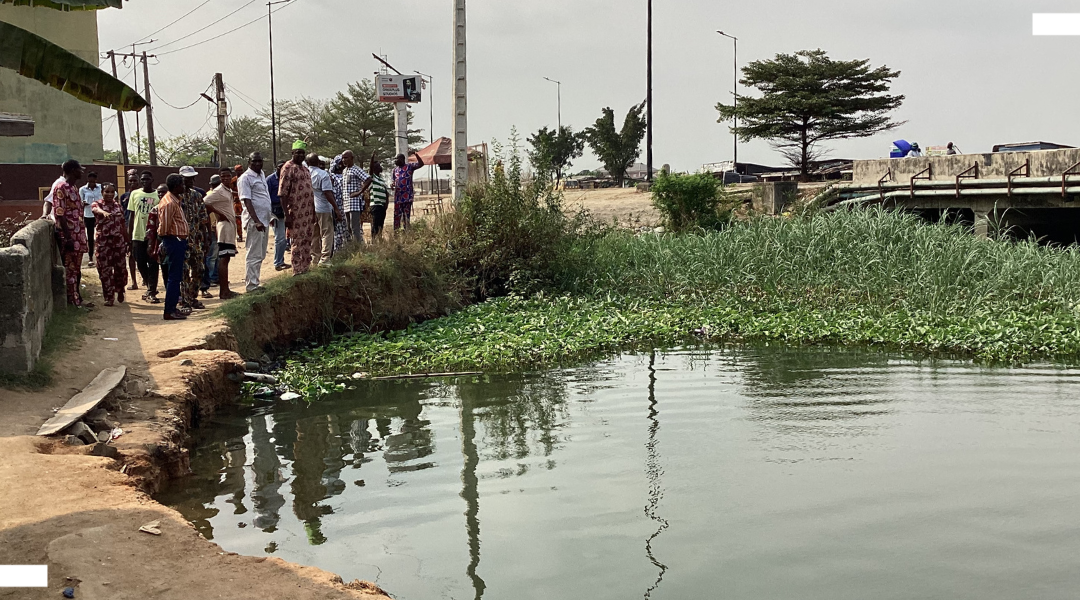
From Margins to Models: Co-creating climate resilience in Lagos community
Jun 27, 2025
“From Margins to Models” – a new ACRC action research project being rolled out in the vulnerable coastal informal settlement of Ajegunle Ikorodu, Lagos – seeks to unlock the potential of communities to enhance climate resilience.

Urban economics in action: Addressing African cities’ challenges
Jun 23, 2025
Earlier this month, our CEO Professor Diana Mitlin participated at the 9th Urbanization and Development Conference, organised by the World Bank and the International Growth Centre in Cape Town.
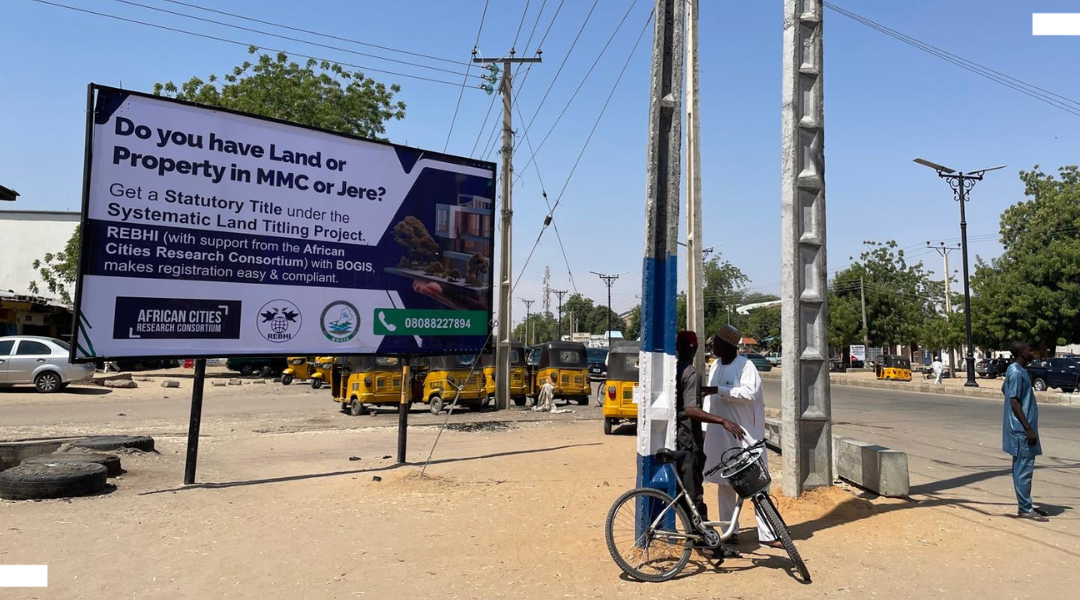
Land in her name: Legal titles transforming the lives of women in Nigeria’s Borno State
Jun 17, 2025
Through the Systematic Land Titling Project, women across informal settlements in Maiduguri are now registering their land – and receiving statutory rights in their own names.

